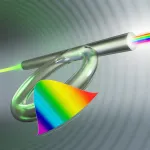The standard treatment for high-risk, HER2-positive early breast cancer is dual anti-HER2 blockade plus chemotherapy. While antibody therapy may enhance innate and adaptive immunity and activate cellular cytotoxicity, there is evidence that combination with a checkpoint inhibitor may further enhance the immune response. (2) IMpassion050 evaluated the efficacy and safety of neoadjuvant atezolizumab versus placebo in patients receiving dose-dense anthracycline and taxane-based chemotherapy as a sequential treatment in combination with the antibodies pertuzumab and trastuzumab.
The trial enrolled 454 patients with high-risk HER2-positive early breast cancer, meaning they had a primary breast tumour size of >2 cm, and pathologic confirmation of nodal involvement. Patients were randomly allocated in a 1:1 ratio to the two treatment arms and received six months of neoadjuvant therapy. Following surgery, patients resumed their allocated treatment with atezolizumab versus placebo. Patients with pCR continued pertuzumab and trastuzumab while those with residual disease could switch to trastuzumab emtansine (T-DM1). (3)
The co-primary endpoints were pCR in the intention to treat (ITT) and PD-L1 positive populations. Event-free survival (EFS), overall survival and safety were secondary endpoints. The trial was stopped prematurely when the Independent Data Monitoring Committee judged that there was an unfavourable benefit-risk profile with the intervention. The data were analysed early, with three patients still to undergo surgery.
In the ITT population, pCR was achieved by 62.4% of the atezolizumab arm and 62.7% of the placebo arm (p= 1.0). In the PD-L1 positive population, pCR was achieved by 64.2% of the atezolizumab arm and 72.5% of the placebo arm (p= 0.2). Regarding safety, there were higher rates of grade 3/4 adverse events (AEs; 51.8% versus 43.6%) and serious AEs (19.5% versus 13.3%) in the neoadjuvant phase with atezolizumab versus placebo, respectively. During neoadjuvant treatment, four patients in the atezolizumab group died compared to no patient in the placebo group. Of the four deaths, two fatal events were assigned to study treatment- - one due to alveolitis and one due to septic shock, although it is not clear whether these were immune-related.
Lead author Prof Jens Huober, professor?of gynaecologic oncology at the Breast Centre St. Gallen, Switzerland, said: "Overall, the safety profile was consistent with other combination studies with atezolizumab, with no new side-effects. It is important to note that this was a selected population of high-risk HER2-positive patients to justify the potential toxicity of the additional drug and because patients with HER2-positive, node negative, smaller tumours do well with standard treatment."
Huober added: "The additional immunotherapy in this setting did not enhance the pCR rate in the overall population or in any subgroup. However, what counts for patients are EFS and overall survival (OS), which were secondary endpoints and we need longer follow-up for those results. In addition, there is some evidence in triple negative breast cancer that pCR may not be the best endpoint for measuring the efficacy of immunotherapy."
Commenting on the study, Dr Carmen Criscitiello, scientist and senior physician at the European Institute of Oncology in Milan, Italy said: "At trial level pCR is not a robust and validated endpoint for efficacy so the findings should be interpreted with caution until there are long-term results on EFS. In triple negative breast cancer, immune checkpoint inhibition added to standard neoadjuvant therapy modestly increased pCR rate in the GeparNUEVO (4) and KEYNOTE-522 studies (5) - yet EFS was significantly improved in both studies."
Criscitiello added: "In the metastatic setting, the benefit of adding an immune checkpoint inhibitor to chemotherapy is largely confined to the PD-L1 positive population. In the neoadjuvant setting, benefit in patients with triple negative breast cancer has been observed in the overall population and in both PD-L1 positive and negative subgroups. In the IMpassion050 PD-L1 positive group, the pCR rate was numerically inferior in the experimental arm compared to the control arm, suggesting a numerical opposite trend in PD-L1 negative tumours. This indicates the need to better investigate biological differences on the impact of PD-L1 by disease setting."
Criscitiello said the findings on safety should be examined carefully given the curative setting. She said: "Toxicity is more or less in line with what has been reported with similar combinations in other settings. There is a need to investigate if there is any link between atezolizumab and the treatment-related deaths, although - except alveolitis - they were not typical immune-related side-effects. In the curative setting we should be even more conservative and cautious when we look at the toxicity that may be induced by a new treatment. So far, this combination has not demonstrated an improvement in pCR rate, so the balance between risk and benefit should be carefully monitored before considering this therapeutic strategy."
INFORMATION:
Notes to Editors
Disclaimer
This press release contains information provided by the author of the highlighted abstract and reflects the content of this abstract. It does not necessarily reflect the views or opinions of ESMO who cannot be held responsible for the accuracy of the data. Commentators quoted in the press release are required to comply with the ESMO Declaration of Interests policy and the ESMO Code of Conduct.
References
1) 'IMpassion050: A phase III study of neoadjuvant atezolizumab + pertuzumab + trastuzumab + chemotherapy (neoadj A + PH + CT) in high-risk, HER2-positive early breast cancer (EBC)' will be presented by Jens Huober during the ESMO Virtual Plenary on Thursday, 17 June 2021, 19:30 to 20:30 (CEST). https://www.esmo.org/meetings/impassion050-a-phase-3-study-of-neoadjuvant-atezolizumab-pertuzumab-trastuzumab-chemotherapy-in-high-risk-her2-positive-early-breast-cancer
2) Bianchini G, Gianni L. The immune system and response to HER2-targeted treatment in breast cancer. Lancet Oncol. 2014;15:e58-e68.
3) von Minckwitz G, Huang CS, Mano MS, et al. Trastuzumab emtansine for residual invasive HER2-positive breast cancer. N Engl J Med. 2019;380:617-628.
4) Loibl S, Schneeweiss A, Huober JB, et al. Durvalumab improves long-term outcome in TNBC: results from the phase II randomized GeparNUEVO study investigating neodjuvant durvalumab in addition to an anthracycline/taxane based neoadjuvant chemotherapy in early triple-negative breast cancer (TNBC). J Clin Oncol. 2021;39 (suppl 15; abstr 506).
5) Merck announces phase 3 KEYNOTE-522 trial met dual primary endpoint of event-free survival (EFS) in patients with high-risk early-stage triple-negative breast cancer (TNBC). May 13, 2021 - https://www.merck.com/news/merck-announces-phase-3-keynote-522-trial-met-dual-primary-endpoint-of-event-free-survival-efs-in-patients-with-high-risk-early-stage-triple-negative-breast-cancer-tnbc/
About the European Society for Medical Oncology (ESMO)
ESMO is the leading professional organisation for medical oncology. With more than 25,000 members representing oncology professionals from over 160 countries worldwide, ESMO is the society of reference for oncology education and information. Driven by a shared determination to secure the best possible outcomes for patients, ESMO is committed to standing by those who care about cancer through addressing the diverse needs of #ONEoncologycommunity, offering #educationforLIFE, and advocating for #accessiblecancerCARE.
VP6-2021 - IMpassion050: A phase III study of neoadjuvant atezolizumab + pertuzumab + trastuzumab + chemotherapy (neoadj A + PH + CT) in high-risk, HER2-positive early breast cancer (EBC)
J. Huober1, C.H. Barrios2, N. Niikura3, M. Jarzab4, Y-C. Chang5, S.L. Huggins-Puhalla6, V. Graupner7, D. Eiger7, V. Henschel8, N. Gochitashvili9, C. Lambertini10, E. Restuccia7, H. Zhang11
1Cantonal Hospital, Breast Center St. Gallen, St. Gallen, Switzerland,2Centro de Pesquisa em Oncologia, Hospital Sao Lucas, PUCRS, Porto Alegre, Brazil,3Department of Breast Oncology, Tokai University School of Medicine, Tokai, Japan,4Breast Cancer Unit, Maria Sklodowska-Curie National Research Institute of Oncology, Gliwice Branch, Gliwice, Poland,5Department of Surgery, Mackay Memorial Hospital, Taipei, Taiwan,6Magee-Women's Hospital, University of Pittsburgh, Pittsburgh, PA, USA,7Product Development Oncology, F. Hoffmann-La Roche Ltd, Basel, Switzerland,8Biostatistics, F. Hoffmann-La Roche Ltd, Basel, Switzerland,9Product Development Safety, Roche Products Limited, Welwyn Garden City, UK,10Oncology Biomarker Development, F. Hoffmann-La Roche Ltd, Basel, Switzerland,11Department of Pathology, Memorial Sloan-Kettering Cancer Center, New York, NY, USA
Background: PH + CT is standard of care for high-risk, HER2-positive EBC. PH activates antibody-dependent cellular cytotoxicity; combining A + PH + CT may restore anti-cancer immunity and further enhance activity. IMpassion050 (NCT03726879), a double-blind, randomised, placebo (PL)-controlled study, evaluated efficacy and safety of neoadj A/PL + PH + CT. We report the primary analysis.
Methods: Patients (pts) had T2-4, N1-3, M0 disease. HER2-positivity, PD-L1 and hormone receptor (HR) status were assessed centrally. Stratification factors: T stage, HR and PD-L1 status. Randomisation was 1:1 to A/PL 840 mg q2w Cycles (C) 1-4/1200 mg q3w C5-8 + dose-dense doxorubicin + cyclophosphamide (ddAC) q2w C1-4 followed by paclitaxel (Pac) qw C5-8 + standard PH q3w C5-8. Post-surgery, pts continued PH + A/PL to complete 52 weeks in total. Pts with residual disease could switch to trastuzumab emtansine + A/PL. Co-primary endpoints: Pathological complete response (pCR; ypT0/is ypN0) in the ITT and PD-L1-positive populations. Safety was a secondary endpoint. On 26/01/21 the IDMC met and recommended that A/PL treatment (Tx) be stopped due to an unfavourable benefit-risk profile. Data were analysed early (clinical cutoff: 05/02/21), with 3 pts yet to undergo surgery.
Results: 226 pts were assigned to A; 228 to PL. pCR in the ITT population of the A and PL arms: 62.4% (95% CI 55.7, 68.7) and 62.7% (56.1, 69.0), respectively (Delta -0.33%; -9.2, 8.6; P= 1.0). pCR in the PD-L1-positive population (109 per arm): 64.2% (54.5, 73.2) and 72.5% (63.1, 80.6), respectively (Delta -8.26%; -20.6, 4.0; P= 0.2). In the neoadj phase, Grade 3/4 adverse events (AEs; 51.8% v 43.6%) and serious AEs (19.5% v 13.3%) were increased with A without increased withdrawals from any study Tx. There were 4 Grade 5 AEs in the neoadj phase (alveolitis,* septic shock,* sepsis, COVID-19 [*Tx-related, per investigator]) and 1 in the adjuvant phase (COVID-19); all with A and confounded by comorbidities and concurrent events.
Conclusions: A + ddAC-PacPH did not result in increased pCR in the ITT or PD-L1-positive populations. Overall, the safety profile was consistent with the known profile in other combination studies with A, with no new safety signals.
Clinical trial identification: NCT03726879 (BO40747), 1 Nov 2018
Editorial acknowledgement: Support for third-party writing assistance for this abstract, furnished by Daniel Clyde, PhD, of Health Interactions, was provided by F. Hoffmann-La Roche Ltd
Legal entity responsible for the study: F. Hoffmann-La Roche Ltd, Basel, Switzerland
Funding: F. Hoffmann-La Roche Ltd, Basel, Switzerland
Disclosures: J. Huober: Financial Interests, Personal, Invited Speaker, Honoraria: Lilly, Novartis, Roche, Pfizer, AstraZeneca, MSD, Celgene; Eisai, AbbVie; Non-Financial Interests, Personal, Research Grant, Third-party writing support: F. Hoffmann-La Roche Ltd; Financial Interests, Institutional, Research Grant, Study funding: F. Hoffmann-La Roche Ltd; Financial Interests, Personal, Advisory Board: Lilly, Novartis, Roche, Pfizer, Hexal, AstraZeneca, MSD, Celgene, AbbVie; Financial Interests, Institutional, Research Grant: Celgene, Novartis, Hexal; Financial Interests, Personal, Other, Travel expenses: Roche, Pfizer, Novartis, Celgene, Daiichi. C.H. Barrios: Non-Financial Interests, Personal, Research Grant, Third-party writing support: F. Hoffmann-La Roche Ltd; Financial Interests, Institutional, Research Grant, Study funding: F. Hoffmann-La Roche Ltd. N. Niikura: Financial Interests, Personal, Invited Speaker: Pfizer, AstraZeneca, Eisai, Chugai, Daiichi Sankyo; Non-Financial Interests, Personal, Research Grant, Third-party writing support: F. Hoffmann-La Roche Ltd; Financial Interests, Institutional, Research Grant, Study funding: F. Hoffmann-La Roche Ltd; Financial Interests, Personal, Advisory Board: Roche, Pfizer, AstraZeneca, MSD, Daiichi Sankyo; Financial Interests, Institutional, Research Grant: Chugai, Daiichi-Sankyo, Pfizer, Eisai. M. Jarzab: Financial Interests, Personal, Invited Speaker: F. Hoffmann-La Roche Ltd; Pfizer; Novartis, MSDr; Non-Financial Interests, Personal, Research Grant, Third-party writing support : F. Hoffmann-La Roche Ltd; Financial Interests, Institutional, Research Grant, Study funding: F. Hoffmann-La Roche Ltd. Y. Chang: Financial Interests, Institutional, Research Grant, Study funding: F. Hoffmann-La Roche Ltd; Non-Financial Interests, Personal, Research Grant, Third-party writing support: F. Hoffmann-La Roche Ltd. S.L. Huggins-Puhalla: Financial Interests, Institutional, Research Grant, Study funding: F. Hoffmann-La Roche Ltd; Non-Financial Interests, Personal, Research Grant, Third-party writing support: F. Hoffmann-La Roche Ltd; Financial Interests, Institutional, Research Grant: Pfizer, AstraZeneca; Non-Financial Interests, Personal, Other, Consultant/Steering Committee membership: AbbVie, Roche. V. Graupner: Financial Interests, Personal, Full or part-time Employment: F. Hoffmann-La Roche Ltd; Financial Interests, Personal, Stocks/Shares: F. Hoffmann-La Roche Ltd; Non-Financial Interests, Personal, Research Grant, Third-party writing support: F. Hoffmann-La Roche Ltd. D. Eiger: Financial Interests, Personal, Full or part-time Employment: F. Hoffmann-La Roche Ltd; Financial Interests, Personal, Stocks/Shares: F. Hoffmann-La Roche Ltd; Non-Financial Interests, Personal, Research Grant, Third-party writing support: F. Hoffmann-La Roche Ltd; Financial Interests, Personal, Research Grant, ESMO Fellowship 2018-2019: Novartis. V. Henschel: Financial Interests, Personal, Full or part-time Employment: F. Hoffmann-La Roche Ltd; Financial Interests, Personal, Stocks/Shares: F. Hoffmann-La Roche Ltd; Non-Financial Interests, Personal, Research Grant, Third-party writing support: F. Hoffmann-La Roche Ltd. N. Gochitashvili: Financial Interests, Personal, Full or part-time Employment: Roche Products Limited; Financial Interests, Personal, Stocks/Shares: F. Hoffmann-La Roche Ltd; Non-Financial Interests, Personal, Research Grant, Third-party writing support: F. Hoffmann-La Roche Ltd. C. Lambertini: Financial Interests, Personal, Full or part-time Employment: F. Hoffmann-La Roche Ltd; Non-Financial Interests, Personal, Research Grant, Third-party writing support: F. Hoffmann-La Roche Ltd. E. Restuccia: Financial Interests, Personal, Full or part-time Employment: F. Hoffmann-La Roche Ltd; Financial Interests, Personal, Stocks/Shares: F. Hoffmann-La Roche Ltd; Non-Financial Interests, Personal, Research Grant, Third-party writing support: F. Hoffmann-La Roche Ltd. H. Zhang: Financial Interests, Institutional, Research Grant, Study funding: F. Hoffmann-La Roche Ltd; Non-Financial Interests, Personal, Research Grant, Third-party writing support: F. Hoffmann-La Roche Ltd; Financial Interests, Personal, Other, Consultant on clinical trials: Roche/Genentech.





